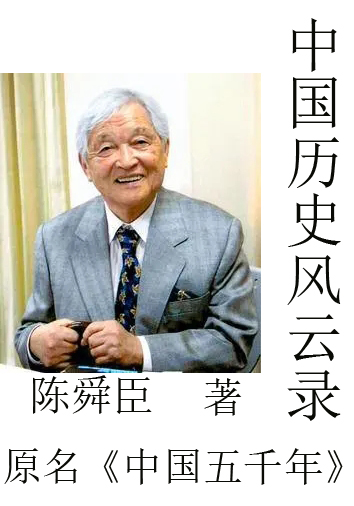He advanced a pace, closed the door mechanically behind him, and remained standing, contemplating what he saw.
It was a vast and badly lighted apartment, now full of uproar, now full of silence, where all the apparatus of a criminal case, with its petty and mournful gravity in the midst of the throng, was in process of development.
At the one end of the hall, the one where he was, were judges, with abstracted air, in threadbare robes, who were gnawing their nails or closing their eyelids; at the other end, a ragged crowd; lawyers in all sorts of attitudes; soldiers with hard but honest faces; ancient, spotted woodwork, a dirty ceiling, tables covered with serge that was yellow rather than green; doors blackened by handmarks; tap-room lamps which emitted more smoke than light, suspended from nails in the wainscot; on the tables candles in brass candlesticks; darkness, ugliness, sadness; and from all this there was disengaged an austere and august impression, for one there felt that grand human thing which is called the law, and that grand divine thing which is called justice.
No one in all that throng paid any attention to him; all glances were directed towards a single point, a wooden bench placed against a small door, in the stretch of wall on the President's left; on this bench, illuminated by several candles, sat a man between two gendarmes.
This man was the man.
He did not seek him; he saw him; his eyes went thither naturally, as though they had known beforehand where that figure was.
He thought he was looking at himself, grown old; not absolutely the same in face, of course, but exactly similar in attitude and aspect, with his bristling hair, with that wild and uneasy eye, with that blouse, just as it was on the day when he entered D——, full of hatred, concealing his soul in that hideous mass of frightful thoughts which he had spent nineteen years in collecting on the floor of the prison.
He said to himself with a shudder, "Good God! shall I become like that again?"
This creature seemed to be at least sixty; there was something indescribably coarse, stupid, and frightened about him.
At the sound made by the opening door, people had drawn aside to make way for him; the President had turned his head, and, understanding that the personage who had just entered was the mayor of M. sur M., he had bowed to him; the attorney-general, who had seen M. Madeleine at M. Sur M., whither the duties of his office had called him more than once, recognized him and saluted him also: he had hardly perceived it; he was the victim of a sort of hallucination; he was watching.
Judges, clerks, gendarmes, a throng of cruelly curious heads, all these he had already beheld once, in days gone by, twenty-seven years before; he had encountered those fatal things once more; there they were; they moved; they existed; it was no longer an effort of his memory, a mirage of his thought; they were real gendarmes and real judges, a real crowd, and real men of flesh and blood: it was all over; he beheld the monstrous aspects of his past reappear and live once more around him, with all that there is formidable in reality.
All this was yawning before him.
He was horrified by it; he shut his eyes, and exclaimed in the deepest recesses of his soul, "Never!"
And by a tragic play of destiny which made all his ideas tremble, and rendered him nearly mad, it was another self of his that was there! all called that man who was being tried Jean Valjean.
Under his very eyes, unheard-of vision, he had a sort of representation of the most horrible moment of his life, enacted by his spectre.
Everything was there; the apparatus was the same, the hour of the night, the faces of the judges, of soldiers, and of spectators; all were the same, only above the President's head there hung a crucifix, something which the courts had lacked at the time of his condemnation: God had been absent when he had been judged.
There was a chair behind him; he dropped into it, terrified at the thought that he might be seen; when he was seated, he took advantage of a pile of cardboard boxes, which stood on the judge's desk, to conceal his face from the whole room; he could now see without being seen; he had fully regained consciousness of the reality of things; gradually he recovered; he attained that phase of composure where it is possible to listen.
M. Bamatabois was one of the jurors.
He looked for Javert, but did not see him; the seat of the witnesses was hidden from him by the clerk's table, and then, as we have just said, the hall was sparely lighted.
At the moment of this entrance, the defendant's lawyer had just finished his plea.
The attention of all was excited to the highest pitch; the affair had lasted for three hours: for three hours that crowd had been watching a strange man, a miserable specimen of humanity, either profoundly stupid or profoundly subtle, gradually bending beneath the weight of a terrible likeness. This man, as the reader already knows, was a vagabond who had been found in a field carrying a branch laden with ripe apples, broken in the orchard of a neighbor, called the Pierron orchard. Who was this man? an examination had been made; witnesses had been heard, and they were unanimous; light had abounded throughout the entire debate; the accusation said: "We have in our grasp not only a marauder, a stealer of fruit; we have here, in our hands, a bandit, an old offender who has broken his ban, an ex-convict, a miscreant of the most dangerous description, a malefactor named Jean Valjean, whom justice has long been in search of, and who, eight years ago, on emerging from the galleys at Toulon, committed a highway robbery, accompanied by violence, on the person of a child, a Savoyard named Little Gervais; a crime provided for by article 383 of the Penal Code, the right to try him for which we reserve hereafter, when his identity shall have been judicially established. He has just committed a fresh theft; it is a case of a second offence; condemn him for the fresh deed; later on he will be judged for the old crime." In the face of this accusation, in the face of the unanimity of the witnesses, the accused appeared to be astonished more than anything else; he made signs and gestures which were meant to convey No, or else he stared at the ceiling: he spoke with difficulty, replied with embarrassment, but his whole person, from head to foot, was a denial; he was an idiot in the presence of all these minds ranged in order of battle around him, and like a stranger in the midst of this society which was seizing fast upon him; nevertheless, it was a question of the most menacing future for him; the likeness increased every moment, and the entire crowd surveyed, with more anxiety than he did himself, that sentence freighted with calamity, which descended ever closer over his head; there was even a glimpse of a possibility afforded; besides the galleys, a possible death penalty, in case his identity were established, and the affair of Little Gervais were to end thereafter in condemnation. Who was this man? what was the nature of his apathy? was it imbecility or craft? Did he understand too well, or did he not understand at all? these were questions which divided the crowd, and seemed to divide the jury; there was something both terrible and puzzling in this case: the drama was not only melancholy; it was also obscure.
The counsel for the defence had spoken tolerably well, in that provincial tongue which has long constituted the eloquence of the bar, and which was formerly employed by all advocates, at Paris as well as at Romorantin or at Montbrison, and which to-day, having become classic, is no longer spoken except by the official orators of magistracy, to whom it is suited on account of its grave sonorousness and its majestic stride; a tongue in which a husband is called a consort, and a woman a spouse; Paris, the centre of art and civilization; the king, the monarch; Monseigneur the Bishop, a sainted pontiff; the district-attorney, the eloquent interpreter of public prosecution; the arguments, the accents which we have just listened to; the age of Louis XIV., the grand age; a theatre, the temple of Melpomene; the reigning family, the august blood of our kings; a concert, a musical solemnity; the General Commandant of the province, the illustrious warrior, who, etc.; the pupils in the seminary, these tender levities; errors imputed to newspapers, the imposture which distills its venom through the columns of those organs; etc. The lawyer had, accordingly, begun with an explanation as to the theft of the apples,--an awkward matter couched in fine style; but Benigne Bossuet himself was obliged to allude to a chicken in the midst of a funeral oration, and he extricated himself from the situation in stately fashion. The lawyer established the fact that the theft of the apples had not been circumstantially proved. His client, whom he, in his character of counsel, persisted in calling Champmathieu, had not been seen scaling that wall nor breaking that branch by any one. He had been taken with that branch (which the lawyer preferred to call a bough) in his possession; but he said that he had found it broken off and lying on the ground, and had picked it up. Where was there any proof to the contrary? No doubt that branch had been broken off and concealed after the scaling of the wall, then thrown away by the alarmed marauder; there was no doubt that there had been a thief in the case. But what proof was there that that thief had been Champmathieu? One thing only. His character as an ex-convict. The lawyer did not deny that that character appeared to be, unhappily, well attested; the accused had resided at Faverolles; the accused had exercised the calling of a tree-pruner there; the name of Champmathieu might well have had its origin in Jean Mathieu; all that was true,-- in short, four witnesses recognize Champmathieu, positively and without hesitation, as that convict, Jean Valjean; to these signs, to this testimony, the counsel could oppose nothing but the denial of his client, the denial of an interested party; but supposing that he was the convict Jean Valjean, did that prove that he was the thief of the apples? that was a presumption at the most, not a proof. The prisoner, it was true, and his counsel, "in good faith," was obliged to admit it, had adopted "a bad system of defence." He obstinately denied everything, the theft and his character of convict. An admission upon this last point would certainly have been better, and would have won for him the indulgence of his judges; the counsel had advised him to do this; but the accused had obstinately refused, thinking, no doubt, that he would save everything by admitting nothing. It was an error; but ought not the paucity of this intelligence to be taken into consideration? This man was visibly stupid. Long-continued wretchedness in the galleys, long misery outside the galleys, had brutalized him, etc. He defended himself badly; was that a reason for condemning him? As for the affair with Little Gervais, the counsel need not discuss it; it did not enter into the case. The lawyer wound up by beseeching the jury and the court, if the identity of Jean Valjean appeared to them to be evident, to apply to him the police penalties which are provided for a criminal who has broken his ban, and not the frightful chastisement which descends upon the convict guilty of a second offence.
The district-attorney answered the counsel for the defence. He was violent and florid, as district-attorneys usually are.
He congratulated the counsel for the defence on his "loyalty," and skilfully took advantage of this loyalty. He reached the accused through all the concessions made by his lawyer. The advocate had seemed to admit that the prisoner was Jean Valjean. He took note of this. So this man was Jean Valjean. This point had been conceded to the accusation and could no longer be disputed. Here, by means of a clever autonomasia which went back to the sources and causes of crime, the district-attorney thundered against the immorality of the romantic school, then dawning under the name of the Satanic school, which had been bestowed upon it by the critics of the Quotidienne and the Oriflamme; he attributed, not without some probability, to the influence of this perverse literature the crime of Champmathieu, or rather, to speak more correctly, of Jean Valjean. Having exhausted these considerations, he passed on to Jean Valjean himself. Who was this Jean Valjean? Description of Jean Valjean: a monster spewed forth, etc. The model for this sort of description is contained in the tale of Theramene, which is not useful to tragedy, but which every day renders great services to judicial eloquence. The audience and the jury "shuddered." The description finished, the district-attorney resumed with an oratorical turn calculated to raise the enthusiasm of the journal of the prefecture to the highest pitch on the following day: And it is such a man, etc., etc., etc., vagabond, beggar, without means of existence, etc., etc., inured by his past life to culpable deeds, and but little reformed by his sojourn in the galleys, as was proved by the crime committed against Little Gervais, etc., etc.; it is such a man, caught upon the highway in the very act of theft, a few paces from a wall that had been scaled, still holding in his hand the object stolen, who denies the crime, the theft, the climbing the wall; denies everything; denies even his own identity! In addition to a hundred other proofs, to which we will not recur, four witnesses recognize him--Javert, the upright inspector of police; Javert, and three of his former companions in infamy, the convicts Brevet, Chenildieu, and Cochepaille. What does he offer in opposition to this overwhelming unanimity? His denial. What obduracy! You will do justice, gentlemen of the jury, etc., etc. While the district-attorney was speaking, the accused listened to him open-mouthed, with a sort of amazement in which some admiration was assuredly blended. He was evidently surprised that a man could talk like that. From time to time, at those "energetic" moments of the prosecutor's speech, when eloquence which cannot contain itself overflows in a flood of withering epithets and envelops the accused like a storm, he moved his head slowly from right to left and from left to right in the sort of mute and melancholy protest with which he had contented himself since the beginning of the argument. Two or three times the spectators who were nearest to him heard him say in a low voice, "That is what comes of not having asked M. Baloup." The district-attorney directed the attention of the jury to this stupid attitude, evidently deliberate, which denoted not imbecility, but craft, skill, a habit of deceiving justice, and which set forth in all its nakedness the "profound perversity" of this man. He ended by making his reserves on the affair of Little Gervais and demanding a severe sentence.
At that time, as the reader will remember, it was penal servitude for life.
The counsel for the defence rose, began by complimenting Monsieur l'Avocat-General on his "admirable speech," then replied as best he could; but he weakened; the ground was evidently slipping away from under his feet.
他走上一步,机械地反手把门拉上,立着估量他目前的情况。
这是一间圆厅,灯光惨暗,容积颇大,时而喧嚣四起,时而寂静无声,一整套处理刑事案件的机器,正带着庸俗、愁惨的隆重气派,在群众中间活动。
在厅的一端,他所在的这一端,一些神情疏懒、穿着破袍的陪审官正啃着手指甲或闭着眼皮;另一端,一些衣服褴褛的群众,一些姿态各异的律师,一些面容诚实而凶狠的士兵;污渍的旧板壁,肮脏的天花板,几张铺着哔叽的桌子,这哔叽,与其说是绿的,还不如说是黄的;几扇门上都有黑色的手渍。几张咖啡馆常用的那种光少烟多的植物油灯挂在壁板上的钉子上,桌上的铜烛台里插了几支蜡烛,这里是阴暗、丑陋、沉闷的;从这一切中产生了一种威仪严肃的印象,因为就在这里,大家感受到那种人间的威力和上苍的威力,也就是所谓的法律和正义。
在这群人里,谁也不曾注意他。所有的目光都集中在唯一的一点上,那就是在庭长左方、沿墙靠着一扇小门的那条木凳上。那条凳被几支烛照着,在两个法警间坐着一个人。
这人,便是那个人了。
马德兰并不曾寻找他,却又一下就看见了他。他的眼睛不期然而然地望到了那里,仿佛他事先早知道了那人所在的地方。
他以为看见了自己,不过较老一些,面貌当然不是绝对相似,但是神情和外表却完全一模一样,一头乱竖着的头发,一双横蛮惶惑的眸子,一件布衫,正象他进迪涅城那天的模样,满面恨容,好象要把他费了十九年时间在牢内铺路石上攒起来的怨毒全闷在心中一样。
他打了个寒噤,向自己说:
“我的上帝!难道我又要变成这个样子吗?”
这人看去至少有六十岁光景。他有一种说不出的粗鲁、执拗和惊惶的样子。
门一响,大家都靠紧,为他让出一条路,庭长把头转过去,望见刚进来的人物正是滨海蒙特勒伊的市长先生,便向他行了个礼。检察官从前因公到滨海蒙特勒伊去过多次,早已认识马德兰先生,也同样向他行了个礼。他呢,不大注意,他头昏目眩,只呆呆地望着。
几个审判官,一个记录员,一些法警,一群幸灾乐祸赶热闹的面孔,凡此种种,他在二十七年前都曾见过一次。这些魔鬼,现在他又遇见了,它们正在躜动,他们确实存在。这已不是他回忆中的景象,不是他思想上的幻影,而是一些真正的法警,真正的审判官,真正的听众,一些有血有肉的人。事情已经发展到这一地步,他见到往日的那些触目惊心的景象以及实际事物所能引起的一切恐怖,又在他的四周再次出现,再次活动。
这一切东西都在他面前张牙舞爪。
他心胆俱裂,闭上了眼睛,从他心灵的最深处喊道:“决不!”
造物弄人,演成悲局,使他神魂震悚,烦乱欲狂,并且坐在那里的那个人,又恰是他自己的化身!那个受审判的人,大家都叫他做冉阿让!
他的影子在他眼前扮演他生命中最可怕的一页,这种情景,真是闻所未闻。
一切都在这里出现了,同样的布置,同样的灯光,审判官、法警和观众的面目也大致相同。不过在庭长的上方,有一个耶稣受难像,这是在他从前受判决的时代公堂上缺少的东西。足见他当年受审判时上帝并不在场。
他背后有一张椅子,他颓然落下,如坐针毡,惟恐别人看见他。坐下以后,他利用审判官公案上的一堆卷宗,遮着自己的脸,使全厅的人都看不见他。现在他可以看别人,而别人看不见他了。他渐渐安定下来,他已经完全回到现实的感受中来,心情的镇定已使他达到能听的程度。
巴马达波先生是陪审员之一。
他在找沙威,但是不见他。证人席被记录员的桌子遮着了。并且,我们刚才说过,厅里的灯光是暗淡的。
他进门时,被告的律师正说完他的辩词。全场空气已到了最紧张的程度,这件案子开审已有三个钟头了。在这三个钟头里,大家眼望着一个人,一个陌生人,一个穷极无聊、极其糊涂或极其狡猾的东西,在一种骇人听闻的真情实况的重压下一步步折伏下去。这个人,我们已经知道,是个流浪汉,被别人发现在田野中,拿着一根有熟苹果的树枝,这树枝是从附近一个叫别红园的围墙里的苹果树上折下来的。这个人究竟是谁?已经作了一番调查,证人们刚才也都发了言,众口一词,讨论中真相大白。控词里说:“我们逮捕的不仅是个偷水果的小偷,不仅是个贼,我们手里抓获的是一个匪徒,一个违反原判、擅离指定住址的累犯,一个旧苦役犯,一个最危险的暴徒,一个久已通缉在案名叫冉阿让的奸贼,八年前,从土伦牢狱里出来时,又曾手持凶器,在大路上抢劫过一个叫小瑞尔威的通烟囱的孩子,罪关刑律第三百八十三条,一俟该犯经过正式证明,确系冉阿让,当即根据上述条文另行追究。他最近又重行犯罪。这是一次再犯。请先处罚他的新罪,容后提审旧案。”被告在这种控词前,在证人们的一致的意见前,瞠目结舌,不知所对。他摇头顿脚表示否认,或是两眼朝天。他口吃,答话困难,但是他整个人,从头到脚,都表示不服。在这一排排摆开阵式、向他溺战的聪明人面前,他简直是个傻子,简直是个陷入了重围的野人。可是目前正是威胁他未来生活的紧急关头,他的嫌疑越到后来越大,全体观众望着这种极尽诬陷、逐渐向他紧逼的判决词,比起他自己来还更担忧些。还有一层可虑的事,假使他被证实确是冉阿让,小瑞尔威的事将来也得判罪,那么,除监禁以外,还有处死的可能。这究竟是个什么人呢?他那副冥顽不灵的表情是什么性质的呢?是愚蠢还是狡狯?是懂得很清楚还是完全不懂?对这些问题听众各执一辞,陪审团的意见仿佛也不一致。这件疑案,既惊人也捉弄人,不但暖昧不明,而且茫无头绪。
那个辩护士谈得相当好,他那种外省的语句,从前无论在巴黎也好,在罗莫朗坦或蒙勃里松也好,凡是律师都习惯采用,早已成为律师们的词藻,但今天这种语句已成古典的了,它那种持重的声调、庄严的气派,正适合公堂上的那些公家发言人,所以现在只有他们还偶然用用;譬如称丈夫为“良人”,妻子为“内助”,巴黎为“艺术和文化的中心”,国王为“元首”,主教先生为“元圣”,检察官为“辩才无碍的锄奸大士”,律师的辩词称“刚才洗耳恭听过的高论”,路易十四的世纪为“大世纪”,剧场为“墨尔波墨涅殿”,在朝的王室为“我先王的圣血”,音乐会为“雍和大典”,统辖一省的将军为“驰名的壮士某”,教士培养所里的小徒弟为“娇僧”,责令某报该负责的错误为“在刊物篇幅中散布毒素的花言巧语”等等。这律师一开始,便从偷苹果这件事上表示意见,要说得文雅,那确是个难题;不过贝尼涅·博须埃在一篇祭文里,也曾谈到过一只母鸡,而他竟能说得洋洋洒洒,不为所困。这律师认定偷苹果的事没有具体的事实证明。他以辩护人的资格,坚称他的主顾为商马第,他说并没有人看见他亲自跳墙或攀折树枝。别人抓住他时,他手里拿着那根树枝(这律师比较喜欢称树枝为树桠),但是他说他看见它在地上,才拾起来的。反证在什么地方呢?这树枝显然被人偷折,那小偷爬到墙外后,又因心虚便把它丢在地上。贼显然有一个。但是谁能证明这作贼的便是商马第呢?只有一件事,他从前当过苦役犯。律师并不否认这件看来很不幸已被证实的事,被告在法维洛勒住过,被告在那里做过修树枝工人,商马第这个名字源出让·马第是很可能的,这一切都是确实的,并且有四个证人,他们都一眼就认出了商马第便是苦役犯冉阿让。律师对这些线索、这些作证,只能拿他主顾的否认、一种有目的的否认来搪塞;但是即使认定他确是苦役犯冉阿让,这样就能证明他是偷苹果的贼吗?充其量这也只是种猜测而不是证据。被告确实用了“一种拙劣的自卫方法”,他的辩护人“本着良心”也应当承认这一点。他坚决否认一切,否认行窃,也否认当过苦役犯。他如果肯承认第二点,毫无疑问,一定会妥当些,他也许还可以赢得各陪审官的宽恕;律师也曾向他提出过这种意见,但是被告坚拒不从,他以为概不承认便可挽救一切。这是一种错误,不过,难道我们不应当去考虑他智力薄弱的一点?这人显然是个痴子。狱中长期的苦楚,出狱后长期的穷困,已使他变成神经呆笨的人了,律师说着说着,说他不善于为自己辩护,这能成为判罪的理由吗?至于小瑞尔威的事,律师不用讨论,这毫不属于本案范围。最后,律师请求陪审团和法庭,假使他们确认这人是冉阿让,也只能按警章处罚他擅离指定住址,不能按镇压累犯的苦役犯的严刑加以处理。
检察官反驳了辩护律师。他和平时其他的检察官一样,说得慷慨激昂,才华横逸。
他对辩护律师的“忠诚”表示祝贺,并且巧妙地利用了他的忠诚。他从这律师让步的几点上向被告攻击。律师仿佛已经同意被告便是冉阿让。他把这句话记录下来。那么,这个人确是冉阿让了。在控词里,这已被肯定下来不容否认的了。做到这一点,检察长便用一种指桑骂槐的巧妙手法追寻这种罪恶的根源和缘由,怒气冲天地痛斥浪漫派的不道德,当时浪漫派正在新兴时期,《王旗报》和《每日新闻》的批评家们都称它为“撒旦派”!检察官把商马第(说冉阿让还更妥当些)的犯法行为归咎于这种邪侈文学的影响,说得也颇象煞有介事。发挥尽致以后,他转到冉阿让本人身上。冉阿让是什么东西呢?他刻画冉阿让是个狗彘不如的怪物,等等。这种描写的范例在德拉门①的语录里可以看到,对悲剧没有用处,但它每天使法庭上的舌战确实生色不少。听众和陪审团都“为之股栗”。检察官刻画完毕以后,为了获得明天《省府公报》的高度表扬,又指手画脚地说下去:“并且他是这样一种人,等等,等等,等等,流氓,光棍,没有生活能力,等等,等等,生平惯于为非作歹,坐了牢狱也不曾大改,抢劫小瑞尔威这件事便足以证明,等等,等等,他是这样一个人,行了窃,被人在公路上当场拿获,离开一堵爬过的墙只几步,手里还拿着赃物,人赃俱获,还要抵赖,行窃爬墙,一概抵赖,甚至连自己的姓名也抵赖,自己的身份来历也抵赖!我们有说不尽的证据,这也都不必再提了,除这以外,还有四个证人认识他,沙威,侦察员沙威和他从前的三个贼朋友,苦役犯布莱卫、舍尼杰和戈什巴依。他们一致出来作证,他用什么来对付这种雷霆万钧之力呢?抵赖。多么顽固!请诸位陪审员先生主持正义,等等,等等。”检察官发言时,被告张着口听,惊讶之中不无钦佩之意。他看见一个人竟这样能说会道,当然要大吃一惊。在控诉发挥得最“得劲”时,这人辩才横溢,不能自己,恶言蜚语,层出不穷,如同把被告围困在疾风暴雨之中一样,这个犯人不时慢慢地摇着头,由右到左,又由左到右,这便是他在辩论进行中所表示的一种忍气吞声的抗议。离他最近的那几个旁听人听见他低声说了两三次“这都是因为没有问巴陆先生!”检察官请陪审团注意他的这种戆态,这明明是假装的,这并不表示他愚蠢,而是表示他巧黠、奸诈和蒙蔽法官的一贯作法,这就把这个人的“劣根性”揭露无遗了。最后他声明保留小瑞尔威的问题,要求严厉判处。
①德拉门(Théraméne),公元前五世纪雅典暴君。
这就是说,我们记得,暂时处以终身苦役。
被告律师起来,首先祝贺了“检察官先生”的“高论”,接着又尽力辩驳,但是他泄了气。他脚跟显然站不稳了。







